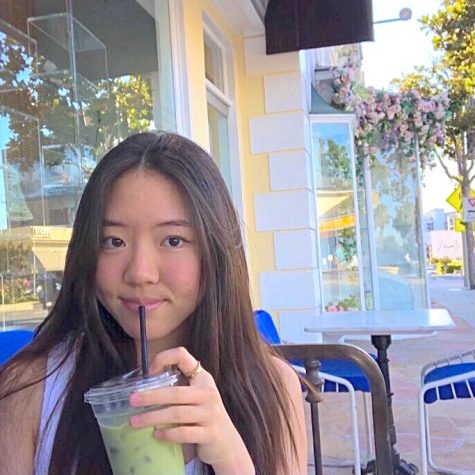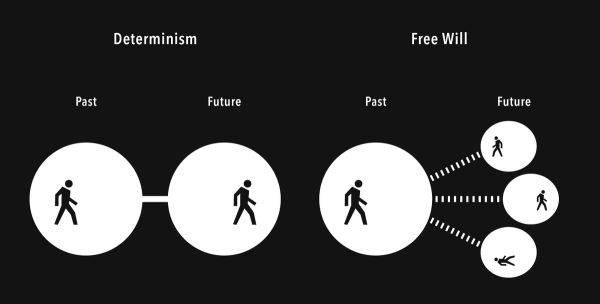The Rise in Asian Hate Crimes Isn’t New to 2021

On February 16, 2021, 75-year-old Pak Ho was brutally attacked in Oakland, California and later passed away. On March 12, Asian women Christine Yan and Isabelle Zhang were run over and murdered in Lakewood, California. And on March 16, a white man entered three spas in Atlanta, Georgia and proceeded to murder eight people, six of whom were Asian women. The names of the six asian individuals are Delaina Ashley Yaun, Xiaojie Tan, Daoyou Feng, Julie Park, Park Hyeon Jeong, and Paul Andre Michels. Hate crimes against Asians are plaguing our country, and it’s time we discuss it.
Many would claim that 2021 has marked the year when Asian hate crimes have rampantly increased. However, it’s clear that these attacks and acts of violence truly began to rise when Covid-19 started to spread in the United States. After the previous president, Donald Trump, began to call Covid the “Kung-flu” and even the “Chinese Virus,” the pandemic has been highly politicized and used to promote racist agendas. Rather than treating the pandemic as a global health crisis, the U.S. government and citizens began to immediately shift the blame onto Asians communities and use them as scapegoats for the pandemic. Sadly, this was a response that occurred globally. In the United States, in Australia, in Italy, and more, Asians were being both verbally and physically assaulted everywhere they went. During March 2020, as the nation began to experience a market craze to prepare for lockdown, Bawi Cung and his two sons were stabbed while shopping for groceries. April 2020, Douglas Kim arrived at his restaurant only to see that someone had written “Stop eating dogs” and vandalized the storefront. These attacks have been going on for much longer than just 2021 alone, and treating it as if it were a new phenomenon simply erases the suffering others had endured before this year.
To treat this racism against Asians as if it just began ultimately proves how ingrained racism against our community has truly been. Due to the Model Minority Myth, many like to believe that racism against Asians just simply doesn’t exist. However, this is false. Even before Covid-19, Asians have constantly been faced with silencing, appropriation, stigmatization, and fetishization. When speaking out against these issues, rather than listening to Asian voices, white American society chooses to ignore and even invalidate these concerns. In fact, this invalidation is the reason why Asian hate crimes during the start of the pandemic never received attention and have only just begun to be discussed a year into the pandemic. Asian culture is also constantly appropriated to benefit American society but with no recognition or reciprocation. American public figures, like Katy Perry during her 2013 AMAs performance, use traditional Asian outfits in ways that were both hypersexualizing these garments and continuing to “other” Asians by promoting a sense of exotism. This has been directly linked to the fetishization of the Asian community in the United States. Rather than viewing Asians as people, many have come to view them as silent and “exotic” sex objects. If this doesn’t seem like much of a problem, it goes to show how normalized it’s been.
The murderer of the massage spa shootings claimed that he had no racial motivation without realizing his strange, sexual desire of Asian women was both a fetish and a “racial motivation.” He claimed that he was driven by a “sexual addiction” towards Asian women who were “a temptation for him he wanted to eliminate.” Fetishization and sexism go hand in hand with racism, and treating it as if it weren’t an interconnected issue continues to normalize prejudice against the AAPI community. There has definitely been a rise in hate crimes since the start of the pandemic, but we need to keep in mind that saying this racism is new and unique to 2021 only invalidates the experiences of others in the past.
It is crucial that we continue to speak out against these injustices, however we must stop treating it like another social media trend. The trend of posting a black square for Black Lives Matter was controversial: many believed that it served as the epitome of social media “slacktivism” and only made it harder for true resources to be found. In fact, it also seemed to water down the movement to a simple hashtag and social media trend. This harmful and simply insensitive “trend” started again but with Asian hate crimes. People all over Instagram have begun to post a yellow square on their accounts, which doesn’t do anything besides clog timelines from showing actually helpful resources and news stories. It also once again treats the rise of AAPI hate crimes as a trend to follow and use to prove you yourself are not a racist. Not to mention the use of a yellow square makes many Asians themselves feel uncomfortable. Not many Asians resonate with being called “yellow,” in fact for many, this term has only been used in racist ways (e.g. “the Yellow Peril”). Overall, this new social media “trend” is insensitive and uncomfortable.
Additionally, we must understand that copying the Black Lives Matter movement is unnecessary and continues to polarize minority groups. Using the hashtag “Asian Lives Matter” is tone deaf as it uses the same abbreviation as “All Lives Matter.” In fact, there’s no reason to completely imitate the Black Lives Matter format in the first place. All this does is creates more opportunity for minority communities to divide rather than unite under a cause. Asian Americans and Black Americans have historically been divided and this polarization is clear when looking at historical events such as the LA Riots. When racism against both communities continues to stay on the rise, it is imperative that we begin to unite and support one another instead of villainize each other.
According to Stop AAPI Hate, there have been nearly 3,800 reported in the span of roughly a year. There has most certainly been a great increase in the number of physical and verbal assaults against Asians. Stop AAPI Hate is a great resource to have in mind for anyone during these times and asks individuals to report personal incidents. As we continue moving through 2021, it is crucial we keep having these discussions and consider the past and future implications.
Resources/Links
To report an incident – https://stopaapihate.org/
The history of America’s anti-Asian sentiment – https://theconversation.com/the-long-history-of-us-racism-against-asian-americans-from-yellow-peril-to-model-minority-to-the-chinese-virus-135793
How the model minority myth has been weaponized – https://www.npr.org/sections/codeswitch/2017/04/19/524571669/model-minority-myth-again-used-as-a-racial-wedge-between-asians-and-blacks

Grade: 12
Years on Staff: 4
Why are you writing for the Flintridge Press?
I'm on the Press because I believe that at the core of every community...






